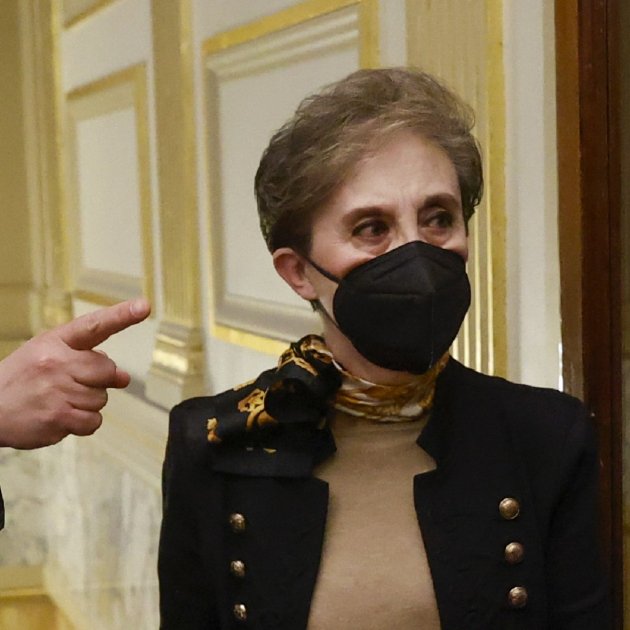More than two weeks after the emergence of the Catalangate scandal of mass espionage against the independence movement, the first head has rolled. It is that of Paz Esteban, director of Spain's National Intelligence Centre (CNI) and as such a person directly responsible for the Pegasus case. But she has not fallen due to the espionage against the independence movement, but due to the spyware infection in the cellphones of Spanish government ministers. She was notified of her dismissal this morning, after the completion of the analysis of all the mobile devices of the ministers, according to El País. It is a first step, but the pro-independence parties and Unidas Podemos have already warned in the last few hours that Esteban's departure is not enough and they are also pointing to the defence minister Margarita Robles, the political leader responsible for the intelligence services.
Paz Esteban, with a long career at the CNI before she was appointed director in 2019, was the person at whom all fingers were pointing in recent weeks over the political espionage scandal. She was one of those blamed by the independence movement, who saw the claws of the Spanish intelligence services behind the Catalangate, as later confirmed in the official secrets committee. But she was also in the spotlight of the Spanish government because of the huge security breach recognized last week that allowed several gigabytes of data to be extracted from the phones of Spanish prime minister Pedro Sanchez as well as defence minister Margarita Robles and interior minister Fernando Grande-Marlaska.
But neither the pro-independence parties nor government coalition junior partner Unidas Podemos are satisfied with just the head of the CNI director, despite the fact that in the last few hours ERC has reduced the pressure on the Moncloa government palace. All are pointing directly at the minister of defence, Margarita Robles, who has even gone as far as to justify the espionage against the Catalan independence leaders in parliament, both in plenary session and in committee. Similarly, they demand a commission of inquiry in the Congress of Deputies and the declassification of judicial authorizations produced in the official secrets committee.
What did Esteban say to the committee?
Spain's National Intelligence Centre spied on the Catalan independence movement, but it did so with judicial authorization from the Supreme Court. Or at least, according to knowledgeable sources, this was the version given last week by the director of the CNI to the official secrets committee. However, Paz Esteban reduced the list of people spied on to only 29 pro-independence leaders, including president Pere Aragonès and people close to former president Carles Puigdemont in Waterloo, Belgium. This is far from the report of 65 Catalan and Basque politicians, activists, lawyers and journalists that Citizen Lab has proven to have had their phone infected with the Pegasus program. And many unknowns remain in the air: if not the CNI, then who spied on the other pro-independence activists? And Spanish prime minister Pedro Sanchez and minister Margarita Robles? The PSOE and the right were apparently satisfied with the meeting; quite the opposite of the pro-independence groups.
